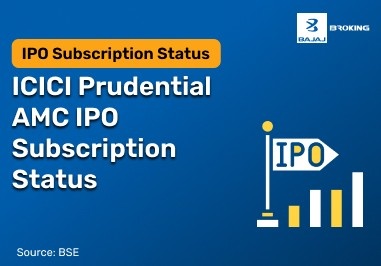Nifty ETFs or the Nifty Exchange-Traded Funds are investment instruments that track the performance of the Nifty 50 index, an India-based benchmark of the top 50 companies listed on the National Stock Exchange (NSE) of India. ETFs give investors exposure to diversified blue-chip stock portfolios through a single investment. ETFs of Nifty trade at real-time prices on the exchanges in high liquidity.
They are technically passive funds, meaning a fund manager does not try to better the Nifty 50 index but rather follow a composition and performance similar to the index, in order to have expense ratios lower and track the indices more efficiently. Nifty ETFs are one of the best alternatives for investors who seek long-term growth, diversification, and easy participation in the Indian equity market.
Understanding About Nifty ETFs in Detail
Nifty ETFs are a smooth pathway to investing in the top performing firms driving the Indian economy. The funds look to replicate the performance of the Nifty 50 index through holding all or nearly all the stocks in the same proportion as the index contains. The Nifty 50 index comprises firms that belong to different sectors including banking, IT, FMCG, and energy which ensure sectoral diversification.
Nifty ETFs mainly target matching the total return from the index Nifty 50. That is, people can buy or sell Nifty ETFs through a stock exchange like buying or selling of any share and experience price fluctuations all along during the trading session in accordance with market movements. Nifty ETF is an investment tool overall because of its trading flexibility as well as the economy in carrying out passive management.
Since they are listed on exchanges, investors can avail themselves of features such as transparency and ease of access, whereby Nifty ETFs can fit both the bill of rookie investors and seasoned ones. Now that we know what is nifty ETFs let’s move onto their benefits.
Benefits of Nifty ETFs
Nifty ETFs have several advantages that make them a favourite for investors:
Diversification:
An investment into a Nifty ETF provides ownership of 50 of India's best and most stable companies based on a diverse sector. Such an investment ensures that the returns obtained are not very sensitive to particular companies or sectors. Investment in a basket of equities reduces unsystematic risks, like a sudden downturn in one company specific to that business, ensuring that your portfolio is ever ready for consistent and sustainable growth.
Live Trade:
Unlike mutual funds, which are traded only once a day at the closing Net Asset Value (NAV), Nifty ETFs can be bought and sold throughout the trading day. This provides investors with the flexibility to capitalize on real-time price movements and execute trades instantly based on market conditions. Such liquidity makes Nifty ETFs an attractive option for those who value timely transactions and market responsiveness.
Transparence:
Nifty ETFs are quite transparent about their constituents as they are tracking the Nifty 50 index. Anyone can view holdings, weightages, and fund performance on public platforms or fund providers. Thus, such transparency allows investors to know at all times where their money is going and what it stands in the market.
Tax Efficiency:
Investing in Nifty ETFs offers great tax advantages compared to other investment vehicles. Long-term holdings have a reduced rate of capital gains tax, which means the investor can maximize post-tax returns. Also, since ETFs have a low portfolio turnover, they rarely incur taxable events, which makes them a tax-efficient choice.
Long-term growth potential
Nifty ETFs invest in blue-chip companies, which are known for their financial stability, strong market presence, and ability to generate consistent returns. Over time, these companies tend to deliver steady growth, making Nifty ETFs a reliable option for investors with long-term goals. Whether you’re saving for retirement or other financial milestones, these ETFs offer a balanced approach to wealth creation.
Hedging Opportunities:
Sophisticated investors use Nifty ETFs as a form of hedging exposure at more holistic risks. They allow the investor to keep equity exposure in times of uncertainty or high volatility while reducing the downside risks. In addition, they can be used with derivative instruments to facilitate a more sophisticated form of hedging and provide flexibility in portfolio management.
Incorporating these benefits, Nifty ETFs position themselves as flexible, transparent, and efficient investments for vast ranges of financial goals and risk appetites.
How to Invest in Nifty ETFs?
Nifty ETF investment is a very simple process, which involves the following steps:
1. Opening Demat Account and Trading Account: To invest in Nifty ETFs, you require a Demat account to hold the units of the ETF and a trading account to execute buy or sell transactions.
2. Choose a Reliable Broker: Select a broker offering access to the National Stock Exchange (NSE), where Nifty ETFs are listed. Platforms like Bajaj Broking provide seamless trading experiences for investors.
3. Research Available Nifty ETFs: Compare the Nifty ETFs in terms of expense ratios, tracking errors, and the performance history. Lower expense ratios with minimal tracking errors guarantee a better return.
4. Place an Order: Log in to your trading account and search for the desired Nifty ETF. You can place the buy order specifying the quantity or the amount you want to invest.
5. Monitoring and Rebalancing:Once invested, regularly track the ETF's performance and keep your investments aligned with your financial goals. Rebalance your portfolio, if necessary.
6. Hold for the Long Term: Nifty ETFs are more suitable for long-term investors. You will have the compounding effect of the market growing while holding them for extended periods.
Investing in Nifty ETFs is cost-effective and efficient to gain market exposure. With these steps, integrating these ETFs into your financial strategy is going to be quite easy.
Risks Associated with Nifty ETFs
Risk Type
| Explanation
|
Market Risk
| Nifty ETFs are exposed to fluctuations in the stock market, mirroring the Nifty 50’s performance.
|
Tracking Error
| The ETF may not perfectly replicate the index due to expenses and operational inefficiencies.
|
Liquidity Risk
| Some ETFs may face lower trading volumes, making it challenging to buy or sell at desired prices.
|
Economic Factors
| Changes in interest rates, inflation, or government policies can impact the underlying stocks.
|
Sectoral Risks
| Overweight exposure to a particular sector in the Nifty 50 index can amplify risks during downturns.
|
Foreign Investment Influence
| Sudden movements by Foreign Institutional Investors (FIIs) in Nifty stocks can create volatility.
|
Conclusion
Nifty ETFs offers investors a low-cost, direct method for investing in India's best performing companies. They offer diversification, transparency, and long-term growth potential and can be used by various types of investors. Yet, as with any investment, there are risks and need careful consideration. In order to understand the Nifty ETFs' structure and benefits, investors will use Nifty ETFs in order to build a strong and diversified portfolio. Nifty ETFs are thus accessible to beginners and to seasoned investors alike as a point of entry into the Indian stock market.
Disclaimer: Investments in the securities market are subject to market risk, read all related documents carefully before investing.
This content is for educational purposes only. Securities quoted are exemplary and not recommendatory.
For All Disclaimers Click Here: https://bit.ly/3Tcsfuc














